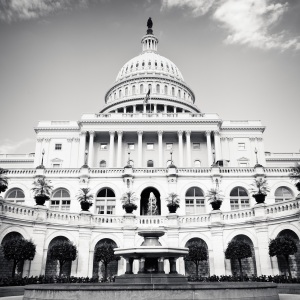
The United States Congress holds the implied constitutional authority to investigate any group, organization, business entity, institution or individual deemed potentially harmful, threatening or challenging to the well-being of the country and its citizens and residents. In 1792 the House of Representatives carried out the first congressional investigation–an examination of the doomed St. Clair expedition. Since that time there have been hundreds of such inquiries and investigative procedures by the legislative branch of our government.
Senate Hearings and Examinations
Particularly during Senate investigations of individuals or groups of people being individually questioned and examined by Senate committees and by the Senate body as a whole, all individuals examined must have access to expert legal advice and counseling.
Especially since such hearings and investigations may involve all areas of life and livelihood concerning those being investigated, many people who are subject to Senate investigations require the advice and services of highly competent attorneys in both civil and criminal law. Aspects of counseling and areas of legal advice necessary to protecting the interests of persons who are subjects of such hearings and examinations by the Senate include:
- Information concerning personal assets and investments, business interests and net worth;
- Copies of personal and business tax returns and data;
- Employment history, military or public service records, business associates and memberships in business-related organizations held by the person under investigation or his/her family members;
- Personal and business equipment purchases and reasons for purchase;
- Records pertaining to purchase or sale of residential or business real estate, vehicles, airplanes, boats and other means of transportation;
- Personal connections to any other businesses, organizations, political or social groups, communities or individuals deemed questionable or potentially dangerous by US government officials or members of the Senate;
- Past criminal records or allegations of criminal activity committed by persons who are under investigation by the Senate;
- Religious affiliations and practices as well as religious group memberships;
- Records of past personal and business travel destinations, reasons for travel and resulting expense reports;
- Identities and information relative to friends, acquaintances, and business associates;
- Information concerning your personal Will and the proposed distribution of your estate upon your death.
Historically, the authority of congressional investigations has been openly challenged by (1) the refusal of the executive branch of government to lend its support or cooperation to such examinations by the legislative branch, and (2) widespread objections based on the generally accepted premise that Senate committees often do reach beyond their constitutional power to investigate.
Implications of Senate Investigations
According to former Senator Sam Ervin as chairman of the well-known Watergate Committee, congressional investigations “‘can be the catalyst that spurs Congress and the public to support vital reforms in our nation’s laws.'” On the other hand, these inquiries may also “‘afford a platform for demagogues and the rankest partisans.'” However, Senate investigations focused on diverse topics, groups and individuals currently prevail as a stable and powerful tool with which Senate members can make decisions relative to informing the public and structuring or passing laws.
Congress is permitted to carry on investigations related to any subject or matter concerning the formulation of public policy. “Over the past two centuries the Senate has probed issues such as interstate commerce, Ku Klux Klan activities, the sinking of the R.M.S. Titanic, Wall Street banking practices, organized crime, antiunion activity, the sale of cotton and the Vietnam War.”
In addition to the countless witnesses who have been called upon to testify before these and many more Senate investigative proceedings, numerous individuals have undergone personal and business-related investigation by the Senate. We currently live in a digital-tech world environment of comprehensive media coverage, instant Internet communications, vast social media networking capabilities and other areas of global technology messaging.
For this reason, individuals who are subjects of Senate inquiries need legal counseling and protection in connection with the unavoidable widespread media and communications reporting concerning sessions and results of their congressional investigations.
Regardless of the reasons for or the scope of a Senate investigation of an individual, it is essential for the person being examined to seek the advice of well-informed and highly experienced attorneys for guidance concerning all aspects of the inquiry. With the expert support and advice of well-qualified legal counsel, the person under Senate investigation will be best prepared to understand his/her personal and professional rights throughout the procedure while cooperating in an informed, calm and consistent manner.
